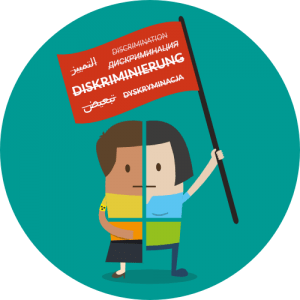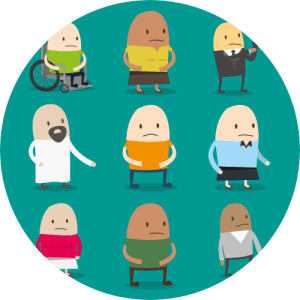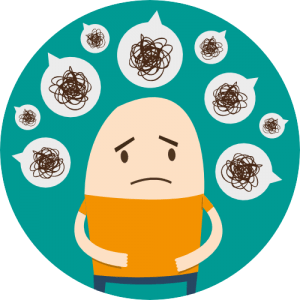General information
Discrimination takes place…
… if a person is disadvantaged as a member of a social group, and
… this social group is a minority, and/or
… subordinated in power relations.
Discrimination serves to stabilize such hierarchies.
Those affected can for example be…
… children living in poverty,
… women who receive relatively low wages for their work in the care, education or similar sectors,
… families in the countryside, who have no access to high-speed internet,
… people, who cannot freely be gay, lesbian or trans*,
… men who find no job or face a (too) long commute to work,
… women who get angry looks because of their headscarfs,
… people who cannot reach every platform because of their wheelchair or walking frame,
… young people who are insulted on the Internet or on the street as ‘migrants’ or ‘jews’,
… children, or the elderly, seen as either ‘too young’ or ‘too old’ to do something.
Discrimination happens in many areas of life…
… in schools, day-care centres and universities,
… at work, at leisure and on the Internet,
… when looking for housing, in offices, while shopping and in public facilities,
… and in many other places.
It is a human right to be protected from discrimination. We base our work on…
… the Universal Declaration of Human Rights (UDHR),
… the Basic Law for the Federal Republic of Germany (GG),
… the Constitution of Saxony-Anhalt (VerfLSA), and
… the German Anti-Discrimination Act (AGG).




